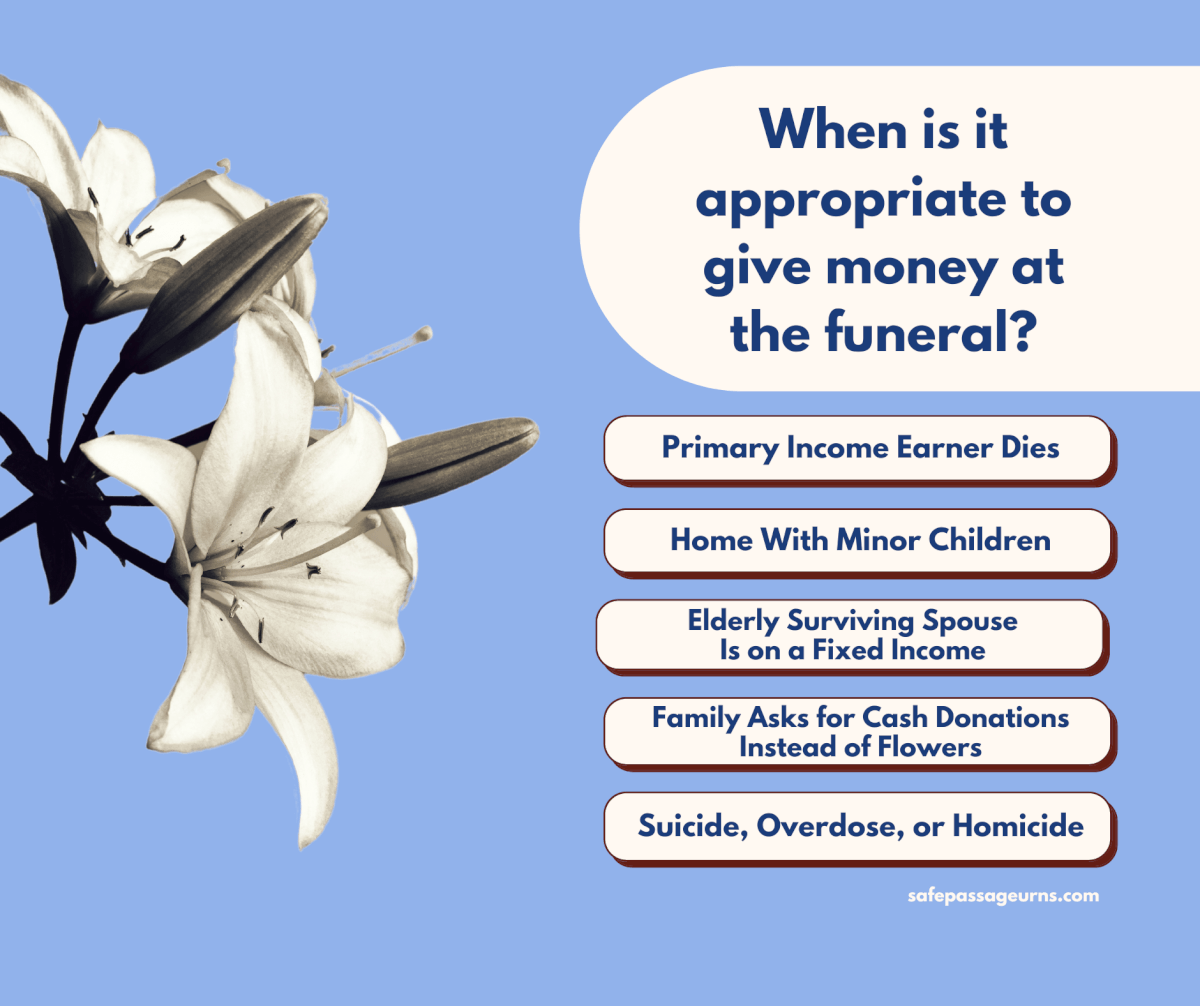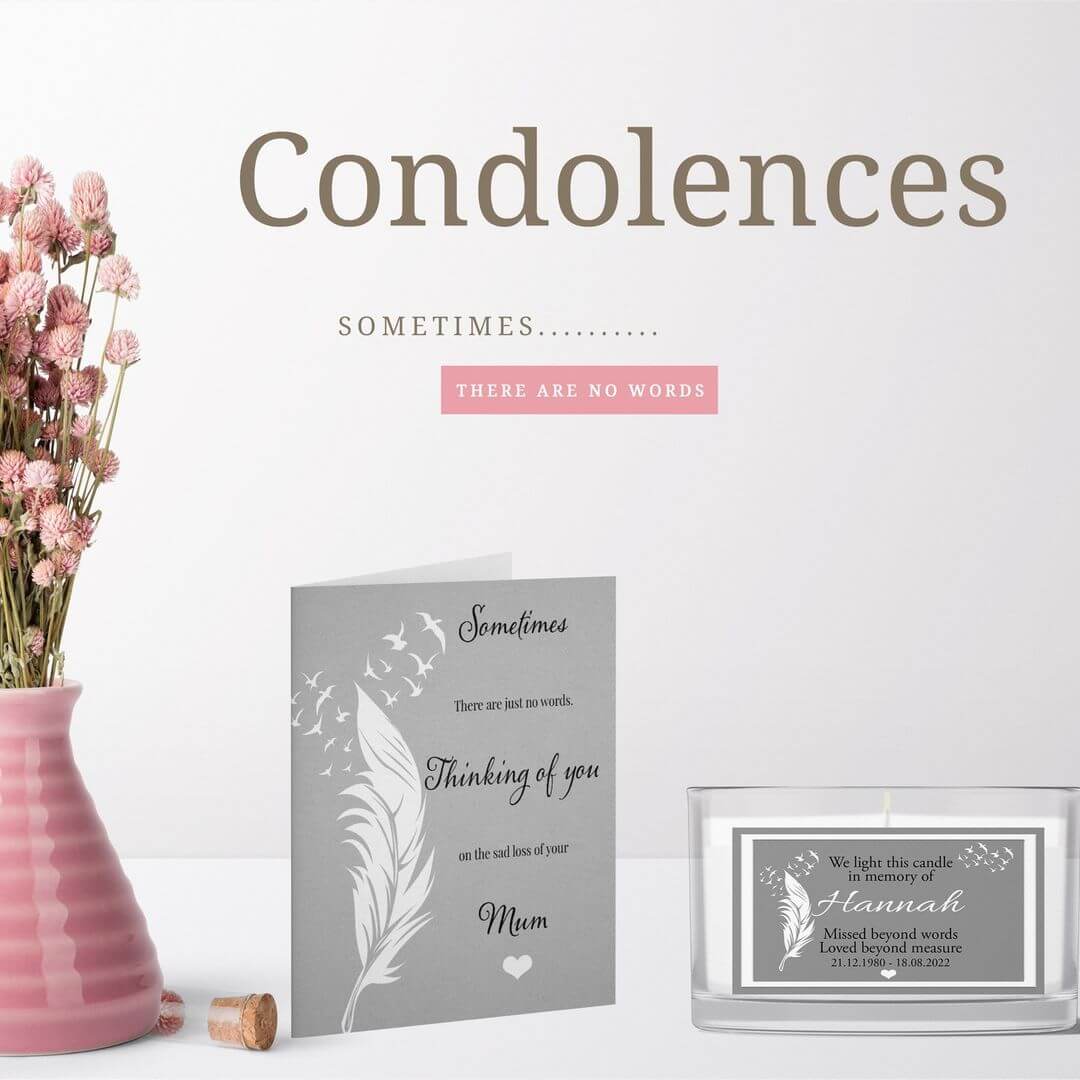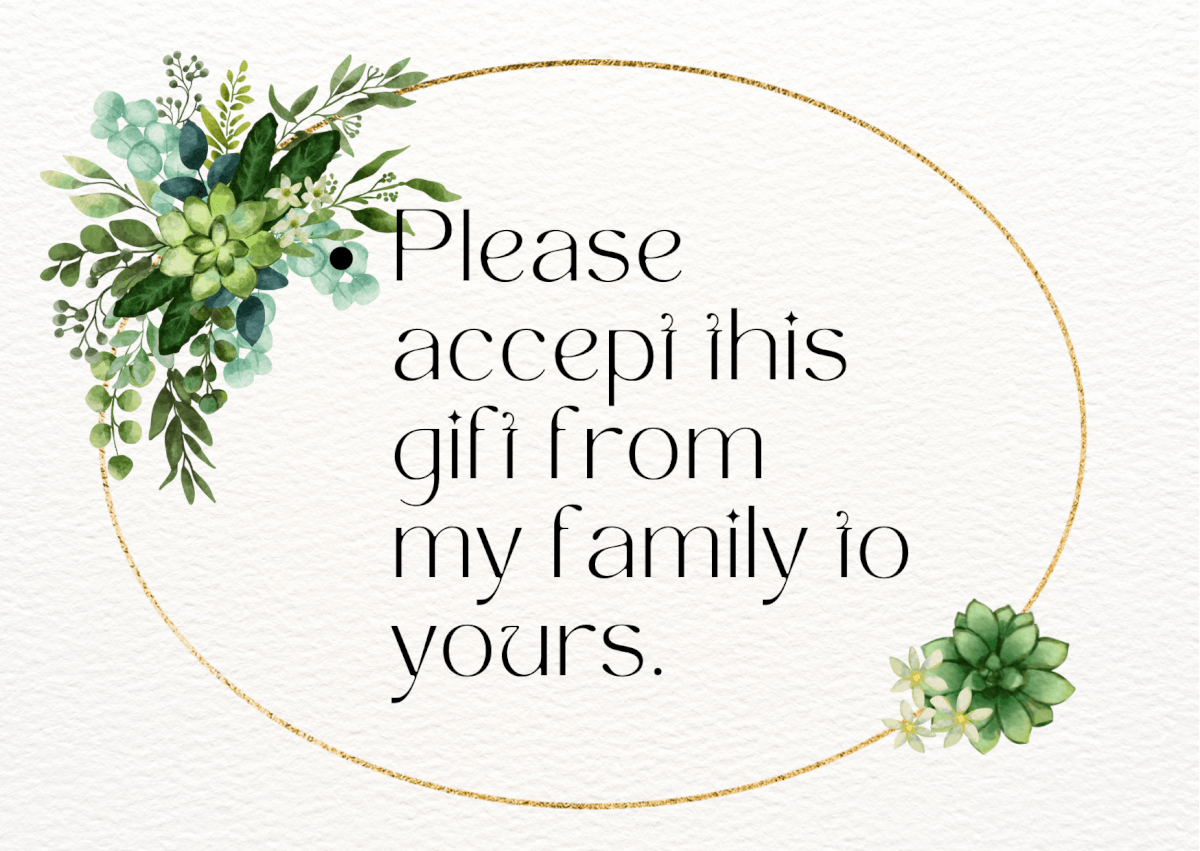There are mixed reviews about giving money at a funeral. You may read not to do it. But sometimes, a bit of cash or a check tucked into a sympathy card makes a big difference to the deceased’s family. Funerals are expensive, and if the family member who died was the primary income earner, then respectfully supporting the family is appreciated.
Etiquette For Giving Money At A Funeral
Consider the family in question and their circumstances when deciding whether to give money at a funeral. Your gift of cash could prove extremely helpful during a difficult time. However, you want to be mindful of the family’s feelings. So learning the proper way to give cash in a sympathy card discreetly is an excellent way to go about it.

What Circumstances Make Giving Condolence Money Appropriate?
Sometimes it makes good sense to give money after a death occurs. For example, even when the deceased has life insurance, unexpected expenses arise in the first months after death. Life insurance claims generally pay out within a couple of weeks but having a bit of cash to assist while awaiting it helps. Here are some circumstance examples to aid you in deciding when a financial gift is appropriate.
- When the primary income earner dies, giving cash to the family is helpful and may be necessary. Cash donations help the family weather the income changes happening. In addition, your financial support may pay an electric bill while a longer-term solution gets worked out.
- Your cash donation will likely be significantly appreciated in a home with minor children. There are many ways that extra money will help, especially if half the household income is now gone. For example, the children may need appropriate clothing for the funeral. Or perhaps assistance with childcare while the remaining spouse continues working. Your donation will help support the children in multiple ways now that one parent is gone.
- When an elderly surviving spouse is on a fixed income, your financial contribution may make a big difference for them. The need may be more prominent if a large family isn’t contributing to the survivor’s care. The responsibility of caring for our seniors rests on all our shoulders.
- It is appropriate to give money when a family asks for cash donations instead of flowers. I’ve seen more than one crowdfunding request on Facebook for funeral donations. Usually, these are in the form of GoFundMe campaigns. So, when a family expresses a specific need, it is always okay to do what you can to help meet their needs.
- Other circumstances when it is appropriate to give money at a funeral is when death occurs due to suicide, overdose, or homicide. These unexpected and tragic losses leave family members gob-smacked. They are beyond themselves with grief and often have no easy means of paying for funeral services. Additionally, insurance companies may deny benefit claims so that the family may be completely unprepared for a $10,000 funeral bill.
There are likely many other scenarios when it is appropriate to give money after someone dies. Listen to your instincts, as they usually steer you correctly. Your financial gift will be appreciated in such difficult times.
When To Give Money After Someone Dies
If you plan to give money after someone dies, do you have to wait to give it at the funeral? I don’t think you need to wait. If you know the family well enough, tuck some cash into a condolence card, and drop by. Bring a casserole along, too, as food is most appreciated after a death occurs.
Grieving families will tell you that it’s lovely to have friends stop by to offer condolences. They need the reminder that they aren’t alone. Keep your visit short; 15 minutes is plenty. If the family encourages you to visit longer, let them be the guide. But remember, your purpose is a quick stop to express sympathy, give a gift, and be supportive.
You might also give money when attending the funeral itself. That is a perfect opportunity. Put the money into a sympathy card and hand it directly to the person you want to receive it. It’s okay to mention that there’s a little something extra in the envelope. Be discreet and quiet.
Giving money within the first two weeks after death is a reasonable timeline. The family then has the opportunity to use it in the best way for them. That may mean funeral expenses or household bills. Your kindness will make a difference.

How Much Money To Give At A Funeral
How much money to give at a funeral is an excellent question. And honestly, it is not one I can quickly answer for you. The amount you give depends on what you can afford and the circumstances of the deceased’s family.
But here’s a good rule of thumb. Small floral arrangements cost $50-75. Larger ones cost $200 or more. So rather than purchase flowers, gift the amount to the family instead.
A gift as small as $20 will be appreciated when it comes from a place of sacrifice. So rest easy knowing that no amount is too small to give. Additionally, there are times in life when you feel blessed. And if you feel compelled to help the family with a more significant donation, then, by all means, do so.
Giving with an open and loving heart makes the difference here. In some circumstances, we all just need to chip in. You can do that begrudgingly. Or you can do that from a place of grace. The family may not recognize the difference, but you certainly will.
Should You Give Cash, Check, Or Gift Card At A Funeral?
How you give a financial donation at a funeral might make a difference. Cash is the best way to go if you are nearby and will be personally handing the card over. While most of us do our banking electronically now, writing a check could mean the family’s extra trip to the bank. If you live out of the area, a check or gift card are appropriate ways to assist the family.
What To Write In A Sympathy Card With Cash Inside
Wording for the sympathy card with cash inside need not be much different than what you might usually write. Express your sorrow for the loss and maybe add an extra line about the donation. Be careful not to state a specific cause for the money so the family can use it how they choose.
- Please accept this gift from my family to yours.
- Please accept this token of our family’s love for each of you.
- Use this gift in the best manner for your family.
Include a memory you shared with the deceased. This special note reminds the family of the uniqueness of their loved one. They will appreciate your words as much as the cash.

Another option is to give an anonymous cash gift. Simply placing money in a card but not signing your name. You will know what direction to take in your specific circumstances. But anonymity may ease any feeling of financial obligation or embarrassment the family may feel.
When You Shouldn’t Give Money At A Funeral
If a family has asked for specific charitable donations on behalf of the deceased, then make the appropriate contribution. However, you should not give money at the funeral, expecting the family to take care of the details. They already have many things on their minds, so don’t burden them by adding another item to their list. Instead, make your donation directly to the organization.
What To Do With Money Given At A Funeral
If your family is given money at a funeral, it is yours to use as it best meets your needs. There is no obligation to pay funeral costs or any specific item. However, as time permits, it is proper etiquette to thank financial contributors, just as you would thank other people who helped during this difficult time.
Read: What To Say When Someone Says Sorry For Your Loss.
Thank you cards, and personal notes go a long way in letting friends and family know how much you appreciate their assistance. You need not say exactly how you used the funds, but you can if it feels appropriate. You also need not write the same thing inside each card. So let your heart guide you in knowing what details to share.
Conclusion
Giving money at a funeral is an excellent way of showing the family your support. Cash donations help meet funeral expenses and household bills while awaiting life insurance payouts. Your financial gift is one way to show your love, but the family will likely appreciate other methods.
- Consider cooking a meal to take over, even after the funeral has passed.
- Ask if you can mow the lawn. This small act of service may be exactly what the deceased’s family needs.
- When small children are left behind, take a soft, snuggly gift. Think about stuffed animals or very soft blankets. These gifts will give the child something to hold during rough moments.



